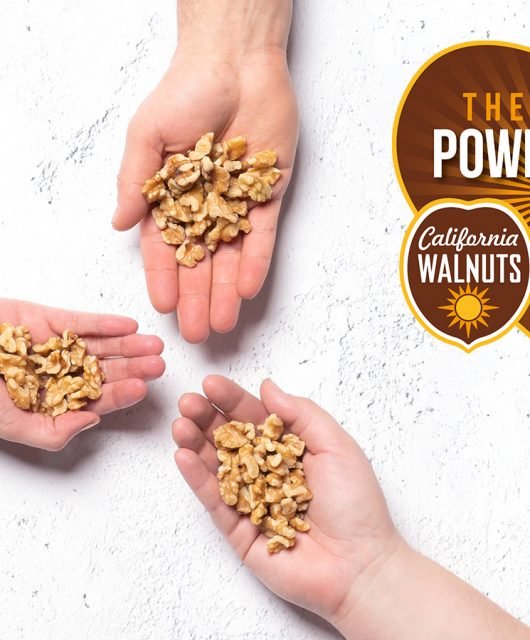70% of Consumers in UAE and KSA Willing to Exchange Personal Data for Enhanced Brand Experiences, Reveals Jack Morton Report
As Brand Experiences Evolve, Consumers Are Willing to Exchange Personal Data for Seamless and Greater Value.
October 1st 2024 I Dubai – Jack Morton, a leading global brand experience agency announced their new research findings that explores consumers’ shifting attitudes toward data privacy and brand trust in an era where AI offers the opportunity for personalization at scale. Experience Better/Insights highlights the evolving landscape of consumer data privacy and brand trust in a post-ChatGPT world. According to the study, more consumers would exchange their data for an AI-driven brand experience than would exchange it for cash or other goods and services.
The new research shows a significant trend among consumers in the MENA region: 70% of respondents in the UAE and 71% in KSA are willing to share their personal data in exchange for better brand experiences.
The Experience Better/Insights report surveyed 5,000 consumers across the US, UK, UAE, Kingdom of Saudi Arabia (KSA), and Singapore in Q2 2024. The results indicate that nearly half (48%) of consumers globally prefer personalized brand experiences over cash or goods, reflecting a transformative shift in consumer expectations. Globally, only 30% of consumers are open to exchanging their data for cash or goods, while 63% expect AI-driven brand experiences to be more engaging and personalized.
These findings highlight the critical need for brands to prioritize consumer engagement and data-driven personalization in their strategies. The report examined consumer behavior using the introduction of ChatGPT as a pivotal moment.
Key findings include:
- Data privacy concerns persist but are weakening: Despite the rise of AI, consumers remain cautious about sharing their data. While more than 61% of US consumers previously insisted on keeping their data private, this number has dropped to 52% post-ChatGPT. Older consumers (50+) are particularly keen to maintain data privacy (76%) compared to younger (18-29) consumers (42%).
In the UAE, concerns about data privacy persist but are lessening. Only 21% of consumers would exchange their data for cash, and 24% for goods, while a notable 70% are willing to trade their data for a tailored brand experience. In KSA, 21% would share their data for cash, 27% for goods, and 71% for enhanced experiences.
- Willingness to share data for value. Consumers (30%) are increasingly interested in exchanging personal data for tangible benefits (cash or goods and services). Younger consumers (18-29) are most willing (38%) older individuals are l least (9%). That number jumps to 48% overall when the exchange is for a better a more personalized brand experience.
- Across the globe, the data varies, but the story is the same. In the Middle East, 70% of people in the UAE and 71% in KSA are willing to trade their data for a better brand experience. In Singapore, the number dips to 56% and in the US and UK, people are more skeptical. Only 23% in the US and 19% in the UK would be interested. The results highlight a critical opportunity for brands to offer clear value propositions in exchange for data.
- The expectation of AI on brand experiences. More than half (63%) of consumers expect AI-driven brand experiences to be more engaging, personalized (59%), relevant (57%), and environmentally friendly (57%). The ability of AI to deliver a 1:1 experience at scale is a significant draw for consumers willing to share their data.
“We’re in the thick of the AI era, and the arrival of tools like ChatGPT mark a major shift in brand-consumer relationships. The opportunity for scalable personalized experiences is clear, but brands must be very clear about the value consumers receive in exchange for their data,” said Joe Panepinto, PhD, SVP, Executive Strategy Director, and Global Head of Learning and Engagement at Jack Morton.
Rebecca Amey, Regional Managing Director, Jack Morton, Dubai says: “More and more consumers across the MENA region are increasingly seeking better brand experiences, and they are willing to exchange their personal data to achieve this. Our findings show that people not only value seamless, engaging interactions with brands but are also willing to share their information for experiences that are truly personalized and resonate deeply with their individual preferences. For instance, knowing whether someone values sustainability, has a passion for technology, or enjoys their weekends listening to Dua Lipa can dramatically transform how we design these experiences, deepening the personal connection between consumers and brands – the very essence of the Jack Morton world.

At Jack Morton, we focus and invest in personalized, data-driven strategies that reflect our commitment to crafting these genuine, distinctive experiences. To succeed, CMOs must prioritize transparency in data collection, ensure ethical practices, and leverage AI to deliver customized experiences that resonate with diverse consumer needs. This approach will drive brand experiences that are more relevant, inspiring, and personalized – pushing creative boundaries as a fair exchange for access to their world, preferences, and behaviors.”
The Experience Better/Insights report is divided into two parts:
- Part 1 examines data privacy and consumer willingness to share personal data for better experiences.
- Part 2 explores the evolution of brand trust and consumer expectations regarding brand behavior. It will be released in the Fall of 2024.
The research was conducted by Jack Morton with support from YouGov and RepData during April and May 2024. Consumers were asked questions about sharing personal data, the expectations for AI and experiences and feelings about how brands behave.
To access the full Experience Better Insights report and gain deeper understanding into consumer attitudes toward data privacy and brand trust, visit our website to download.





